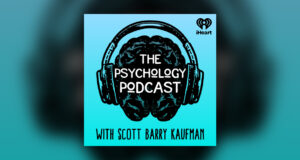
Lithium is an important treatment option for women with bipolar disorder. Because women with bipolar disorder are at high risk for relapse during the postpartum period, we typically recommend that women continue treatment with lithium throughout the postpartum period. While this intervention clearly decreases risk for postpartum psychiatric illness, the use of lithium while breastfeeding presents certain challenges.
Studies quantifying the level of lithium exposure and the risks of lithium exposure in nursing infants are sparse. Historically, women taking lithium have been instructed to avoid breastfeeding based on early reports suggesting high levels of lithium in breast milk and several cases of lithium toxicity in nursing infants (Schou, 1973). While the American Academy of Pediatrics guidelines are less restrictive, their current recommendations do urge caution.
Lithium Levels in Breast Milk
All medications taken by the mother are secreted into the breast milk. The concentration of a particular medication found in breast milk is determined by multiple factors, including the dosage, frequency and timing of ingestion, as well as the preparation (immediate vs. extended release).
Based on studies measuring the amount of lithium in breast milk in a case series of 11 mothers, researchers estimated that the average dosage of lithium in an exclusively breastfed infant would be 12.2% (range 0 to 30%) of the maternal weight-adjusted dosage (Moretti et al, 2000). Peak levels occur within 1 to 3 hours after the ingestion of standard lithium preparations and within 4 to 4.5 hours with the slow and extended release preparations of lithium.
Lithium Levels in Nursing Infants
Few studies have directly measured lithium levels in the nursing infant. Viguera and colleagues examined 10 women taking lithium and their nursing infants. In this cohort, the average dose of lithium carbonate was 841 mg/day (range 600-1200 mg/day) with maternal serum lithium levels ranging from 0.41 – 1.16 mmol/L (mean 0.72 ± 0.22 mmol/L).
Corresponding infant serum levels averaged 0.15 ± 0.07 mmol/L (range 0.09-0.30). Eight of the 10 infants had lithium levels below 0.2 mmol/L. There were no adverse events reported in 9 of the10 infants; one infant had slightly elevated TSH (thyroid stimulating hormone) that normalized after the mother discontinued lithium treatment.
A review from Imaz and colleagues published in 2019 reported on 39 mother-child dyads (including the 10 cases in the Viguera study). Mean maternal lithium dose was 904 mg/day, with a mean maternal lithium serum concentration of 0.73 mmol/L. The mean infant lithium serum concentration was 0.23 mmol/L. Twenty-six (80%) infants had concentrations of less than 0.30 mEq/L and reported no adverse events. Eight (20%) experienced transient adverse events (i.e., acute toxicity or thyroid function abnormalities). All of the adverse events reported here occurred in infants prenatally exposed to lithium.
The most recent report comes from Heinonen et al (2022) reporting on data from 30 infant–mother pairs. All but three infants were also exposed to lithium during pregnancy. The median infant serum lithium concentration was 0.07?mmol/L. Infant lithium levels decreased with age, and the levels measured before one?month of age were significantly higher (mean 0.17 mmol/L , range <0.05 – 1.2 mmol/L) than levels measured after one?month of age (mean 0.7 mmol/L , range <0.05 – 0.2 mmol/L)
In this cohort, two infants had elevated lithium levels: one with a level of 0. 7 mmol/L at 12 days and another with 1.2?mmol/L at 29 days. Both infants were clinically well. Levels decreased over time and with a reduction of breastfeeding.
What is the Risk of Adverse Events?
Given the small number of exposed infants included in the medical literature, and the fact that many of these are case reports, it is impossible to accurately quantify the risk of adverse events in nursing infants. The information we do have suggests that adverse events are more likely to occur if lithium levels are high. Several cases in the literature indicate symptoms of lithium toxicity in the infant developing as a result of dehydration.
There have been several reports of elevated TSH in infants exposed to lithium via breast milk. There have also been reports of altered renal function. Other adverse events include lethargy, decreased muscle tone and inadequate weight gain.
Reviewing the Options for Postpartum Treatment
For women with bipolar disorder, the postpartum period is a time of increased vulnerability to severe psychiatric illness, including postpartum depression and psychosis. To minimize the risk of postpartum illness, we typically recommend that women continue treatment with lithium, or some type of mood stabilizer, throughout the postpartum period. Based on the information we have regarding lithium and breastfeeding, some women may elect to continue lithium but plan to bottle feed their infant rather than breastfeed.
Given the many benefits of breastfeeding, some women taking lithium may wish to breastfeed their infants, either partially or exclusively. Viguera and colleagues note that whether a woman on lithium is breastfeeding exclusively or partially, there are a number of factors that she must consider.
Breastfeeding might be a reasonable option if the following criteria are met:
- Stable maternal mood
- A healthy, full-term infant
- Adherence to infant monitoring guidelines
- A collaborative pediatrician who is supportive of the mother’s decision and who understands the importance of infant monitoring
Monitoring of Nursing Infants
Infants exposed to lithium via breast milk are vulnerable to the same side effects as adults, including changes in thyroid and renal functioning; thus, close clinical monitoring of infants exposed to lithium through breast milk is recommended. This monitoring should include measurement of lithium levels, TSH, BUN and creatinine while the child is nursing.
Guidelines, however, differ on the frequency and timing of these assessments. Based on a systematic review, Imaz and colleagues (2019) recommend that in cases where the mother is treated with lithium during pregnancy, infant lithium level, TSH, and BUN should be assessed at the time of delivery, at 48 hours postpartum and 10 days postpartum. In women who initiate lithium at the time of delivery, testing should occur in the infant at 10 days postpartum. Further monitoring is recommended only if the infant’s lithium level is greater than 0.3 mEq/L or if clinical signs of toxicity appear. (The cutoff of 0.3 mEq/L is based on the finding that most infants with levels below 0.3 mEq/L do not have adverse effects.)
However, others recommend close pediatric follow-up of the infant in combination with more frequent laboratory monitoring (i.e., serum lithium, TSH, BUN). For example, Viguera and colleagues recommend testing during the immediate postpartum period and then every 8-12 weeks if the initial testing is normal. Whatever frequency of testing is indicated, access to an experienced pediatric phlebotomist is important to facilitate blood testing.
Blood tests are indicated if the infant exhibits unusual behavior or signs of lithium toxicity, including lethargy or sedation, restlessness, feeding difficulties, or abnormal growth and development. In addition, the mother must be educated regarding signs of dehydration in the infant. Any fever and/or signs of infection warrant heightened vigilance as they may cause dehydration and increase risk for lithium toxicity in the infant.
Other Considerations in Postpartum Women with Bipolar Disorder
Aside from concerns related to infant exposure to lithium, many clinicians emphasize the risk to maternal mood posed by sleep disturbance. Although it has not been well studied in this population, it is believed that sleep deprivation can trigger mood episodes in postpartum women with bipolar disorder. Bottle feeding and supplementing with formula enables others to participate in nighttime feeds and may protect a mother’s sleep.
Ruta Nonacs, MD PhD
References
Heinonen E, Tötterman K, Bäck K, Sarman I, Svedenkrans J, Forsberg L. Lithium use during breastfeeding was safe in healthy full-term infants under strict monitoring. Acta Paediatr. 2022 Oct;111(10):1891-1898.
Imaz ML, Torra M, Soy D, et al. Clinical lactation studies of lithium: A systematic review. Front Pharmacol. 2019;10:1005.
Moretti ME, Koren G, Verjee Z, Ito S. Monitoring lithium in breast milk: an individualized approach for breast-feeding mothers. Ther Drug Monit. 2003 Jun;25(3):364-6
Schou M, Amdisen A. Lithium and pregnancy III: lithium ingestion by children breastfed by women on lithium treatment. Br Med J (1973) 2:138.
Viguera AC, Newport DJ, Ritchie J, Stowe Z, Whitfield T, Mogielnicki J, Baldessarini RJ, Zurick A, Cohen LS. Lithium in breast milk and nursing infants: clinical implications. Am J Psychiatry. 2007 Feb;164(2):342-5.
Lithium Drugs and Lactation Database (LactMed)




